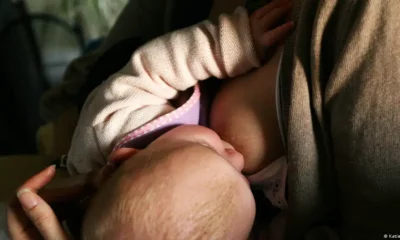SOME patients will be told to get themselves to A&E or book a taxi as a wave of strikes pummels the NHS.
In parts of the UK, even people who have a heart attack or stroke at home will not be able to get an ambulance during the walkout in two days.



Meanwhile, nurses will stage another strike tomorrow — with tens of thousands of operations and appointments hit.
Union leaders are threatening six months of action.
Health Secretary Steve Barclay will tomorrow tell them that patient care is paramount.
Eight in ten ambulances will be delayed or won’t turn up in the strike, NHS bosses warn.
And in the North West, anybody who needs to get from a GP surgery, critical care centre or care home to A&E is being told to call a taxi or get a lift.
Health Secretary Steve Barclay will tomorrow read the riot act to union bosses as tensions run high over 999 cover on strike days.
A government source said he would “send a pretty clear warning” to militant bosses that patient care is paramount.
It comes during what promises to be a week of strike chaos for the health service — with nurses staging their second walkout tomorrow.


Operations and cancer care will again be hit. Strike leaders warned action could “escalate” in the new year unless ministers budge on pay.
Unions have only guaranteed responses for “life-or-limb” Category One calls in the first ambulance strike in decades.
They make up around 15 per cent of incidents — meaning the remaining 85 per cent are set to be hit by delays.
Plans for emergency cover during pay-row strikes were hashed out by local union representatives and regional NHS bosses.
‘Severe impact’
The Health Secretary has summoned a meeting of Unison, GMB and Unite on the eve of industrial action to stress that urgent care must not be compromised.
Mr Barclay said Brits should still call 999 in an emergency but braced them for a “severe impact”.
A No10 spokesman said: “It’s only fair that patients are given clarity about what care patients will get on strike days.”
Prime Minister Rishi Sunak said: “I’m really disappointed to see that the unions are calling these strikes, particularly at Christmas when it has such an impact on people’s day-to-day lives.
“I would urge them to keep considering whether these strikes are really necessary and do everything they can to alleviate the impact it’s going to have on people.”
Joyce Robins, of Patient Concern, said: “If a relative is really in trouble or you’re in that position yourself then it’s a very serious matter if there are no ambulances.
“I’m in favour of people getting the money they need but you’ve got to have emergency services ready or people could die. It isn’t worth that.”
Crews at two services in the North of England would only guarantee to take people to A&E during the strike if they are dying.
One of them, the North East Ambulance Service, even declared a “critical incident” yesterday because of “unprecedented pressure”.
The service said in the afternoon more than 200 patients were waiting for an ambulance but there were severe delays.
Chief operating officer Stephen Segasby said: “Declaring a critical incident means we can focus our resources on patients most in need.”
The North East service said striking staff will only attend “Category One calls and Category Two calls in a public place”, The Times reported.
It means patients who have a heart attack or stroke at home may not get an ambulance. Mr Segasby insisted: “Ambulances will still be able to respond during the strike, but this will only be where there is an immediate risk to life.”
Meanwhile, North West Ambulance Service said it would not collect patients from a GP surgery, care home or walk-in centre unless their heart or breathing stops.
Otherwise they will have to rely on “self-conveyance or taxi conveyance”.
In November, there were an average of 18,917 ambulance callouts per day in England, with 2,722 Category One calls — 14 per cent.
It means more than 16,000 lower priority incidents are at risk of delay or not getting an ambulance.
Ben Holdaway, director of operations at East Midlands Ambulance Service, said: “Our responses to our patients will be much slower on the day.”
More than 25,000 ambulance staff from the Unison, Unite and GMB unions could walk out.
They voted to strike at all NHS ambulance trusts in England and Wales except East Anglia and the Isle of Wight.
A second day of action is set for December 28.
Unison general secretary Christina McAnea said: “Emergency cover plans will be in place. These are drawn up by each ambulance employer, working with the unions.”
Jason Killens, chief executive of the Welsh Ambulance Service, warned: “There will be patients waiting much longer than we would like — and many will probably not receive a response at all.”

Must See
-


Tips
/ 1 year agoTen reasons for Amsterdam
Amsterdam mainly celebrates April 27th in Orange. The king’s birthday is traditionally celebrated with a...
-


Tips
/ 1 year agoTen travel tips for South Korea
A country between high-tech and tradition. A visit to East Asian South Korea is worthwhile...
-


Tips
/ 1 year agoTen reasons for Mecklenburg-West Pomerania
No other federal state has as much water as Mecklenburg-Western Pomerania. Baltic Sea waves wash...













